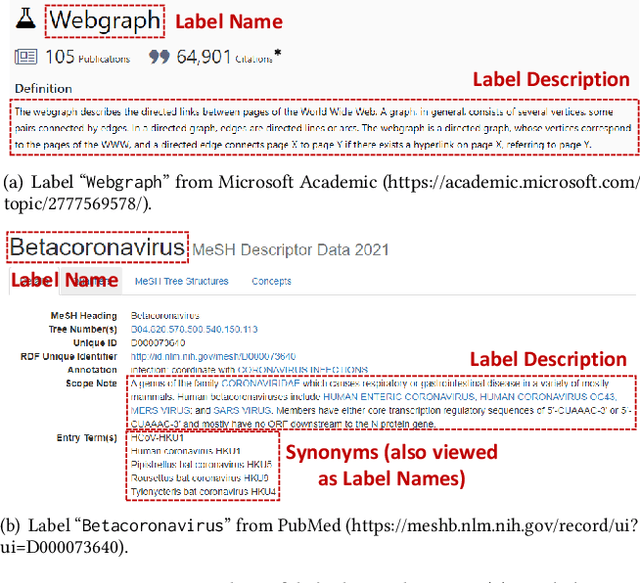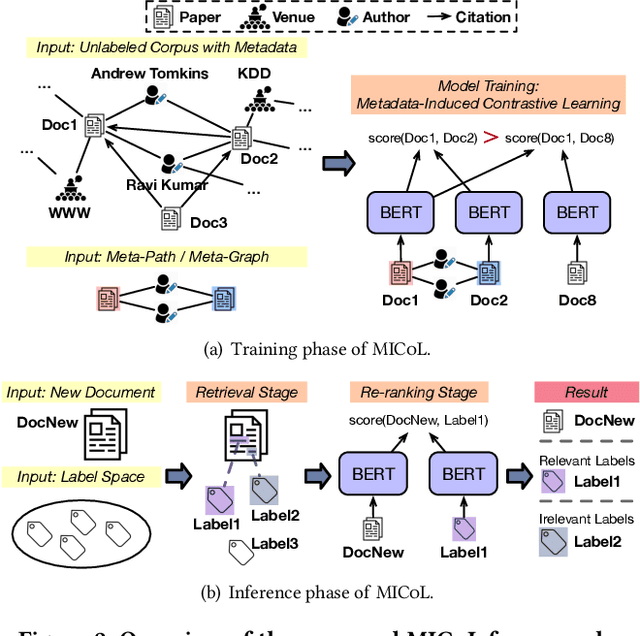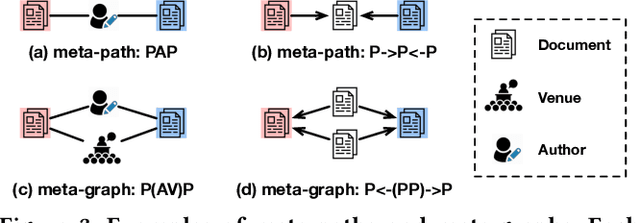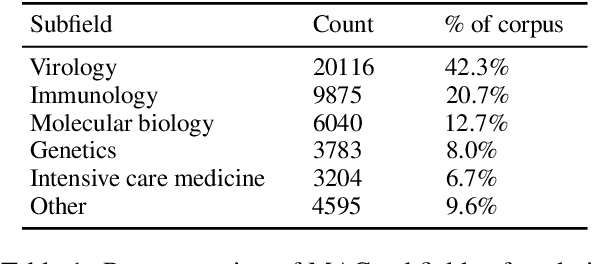Boya Xie
Metadata-Induced Contrastive Learning for Zero-Shot Multi-Label Text Classification
Feb 11, 2022



Abstract:Large-scale multi-label text classification (LMTC) aims to associate a document with its relevant labels from a large candidate set. Most existing LMTC approaches rely on massive human-annotated training data, which are often costly to obtain and suffer from a long-tailed label distribution (i.e., many labels occur only a few times in the training set). In this paper, we study LMTC under the zero-shot setting, which does not require any annotated documents with labels and only relies on label surface names and descriptions. To train a classifier that calculates the similarity score between a document and a label, we propose a novel metadata-induced contrastive learning (MICoL) method. Different from previous text-based contrastive learning techniques, MICoL exploits document metadata (e.g., authors, venues, and references of research papers), which are widely available on the Web, to derive similar document-document pairs. Experimental results on two large-scale datasets show that: (1) MICoL significantly outperforms strong zero-shot text classification and contrastive learning baselines; (2) MICoL is on par with the state-of-the-art supervised metadata-aware LMTC method trained on 10K-200K labeled documents; and (3) MICoL tends to predict more infrequent labels than supervised methods, thus alleviates the deteriorated performance on long-tailed labels.
CORD-19: The Covid-19 Open Research Dataset
Apr 25, 2020



Abstract:The Covid-19 Open Research Dataset (CORD-19) is a growing resource of scientific papers on Covid-19 and related historical coronavirus research. CORD-19 is designed to facilitate the development of text mining and information retrieval systems over its rich collection of metadata and structured full text papers. Since its release, CORD-19 has been downloaded over 75K times and has served as the basis of many Covid-19 text mining and discovery systems. In this article, we describe the mechanics of dataset construction, highlighting challenges and key design decisions, provide an overview of how CORD-19 has been used, and preview tools and upcoming shared tasks built around the dataset. We hope this resource will continue to bring together the computing community, biomedical experts, and policy makers in the search for effective treatments and management policies for Covid-19.
 Add to Chrome
Add to Chrome Add to Firefox
Add to Firefox Add to Edge
Add to Edge